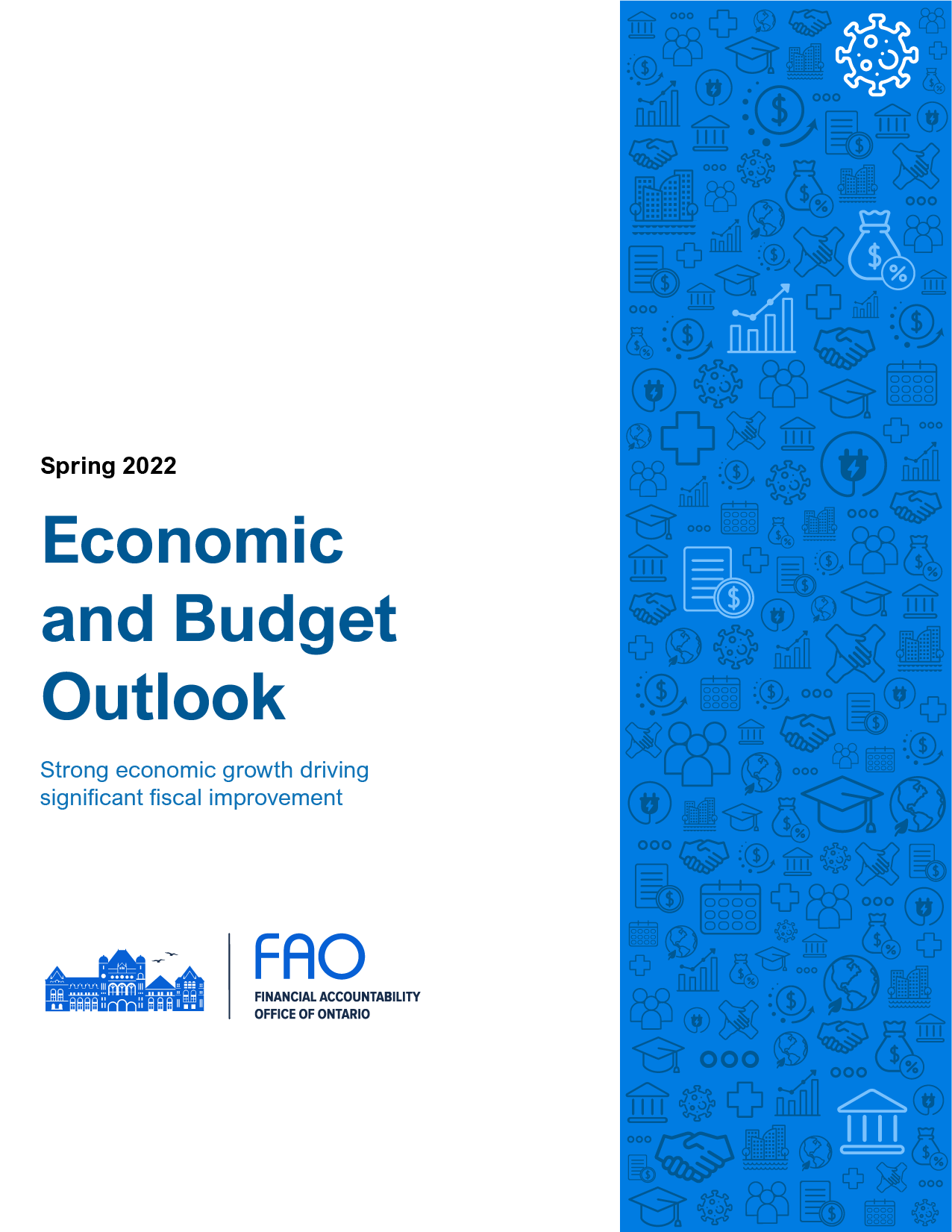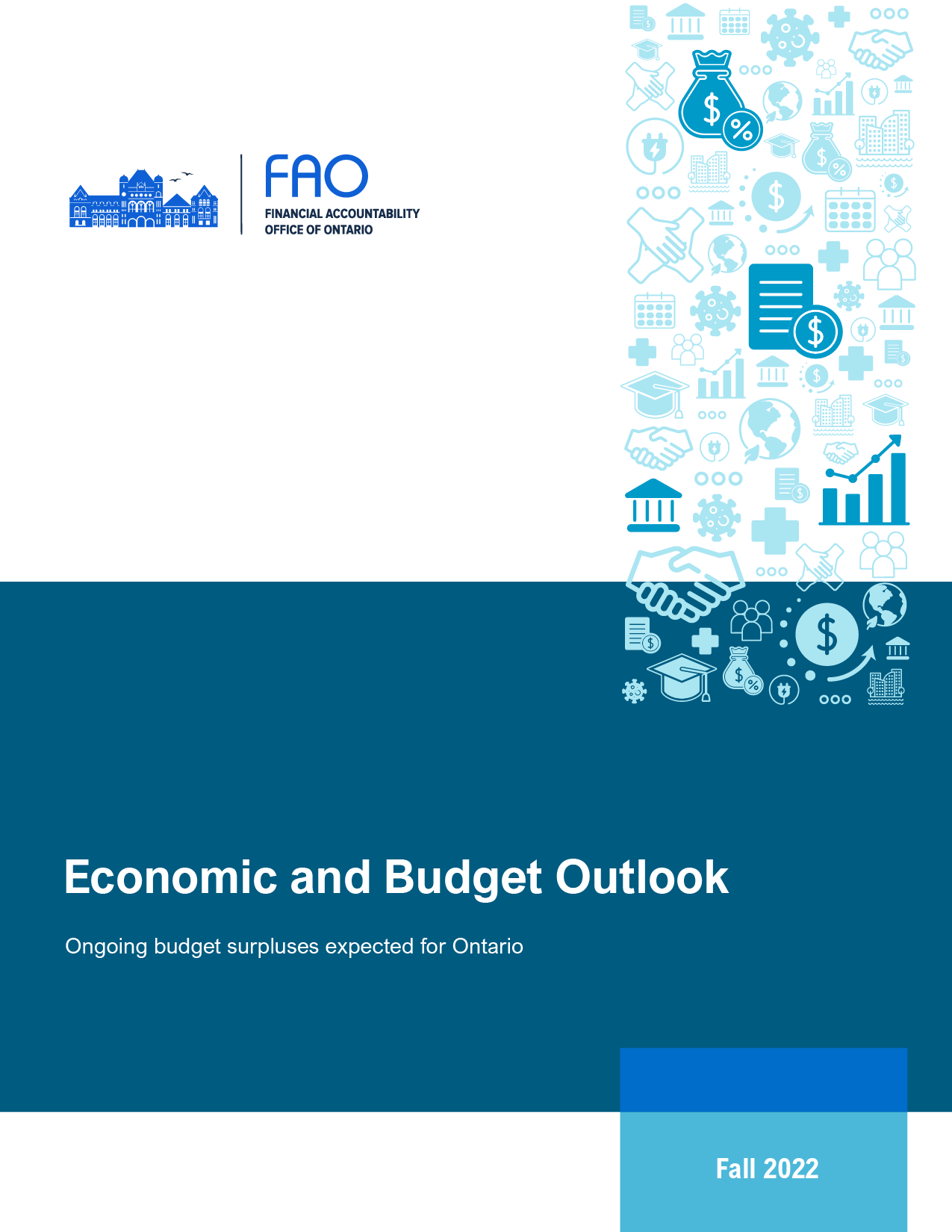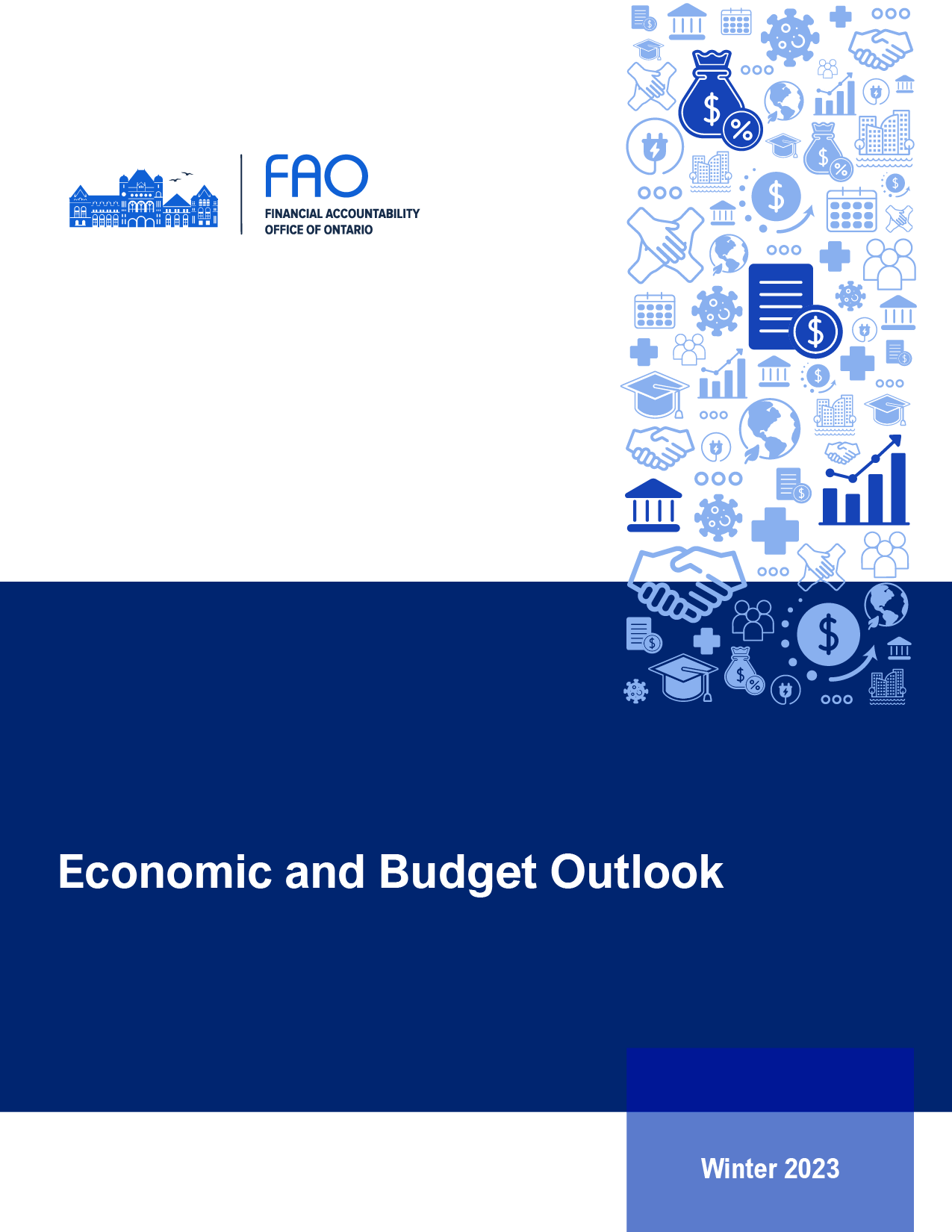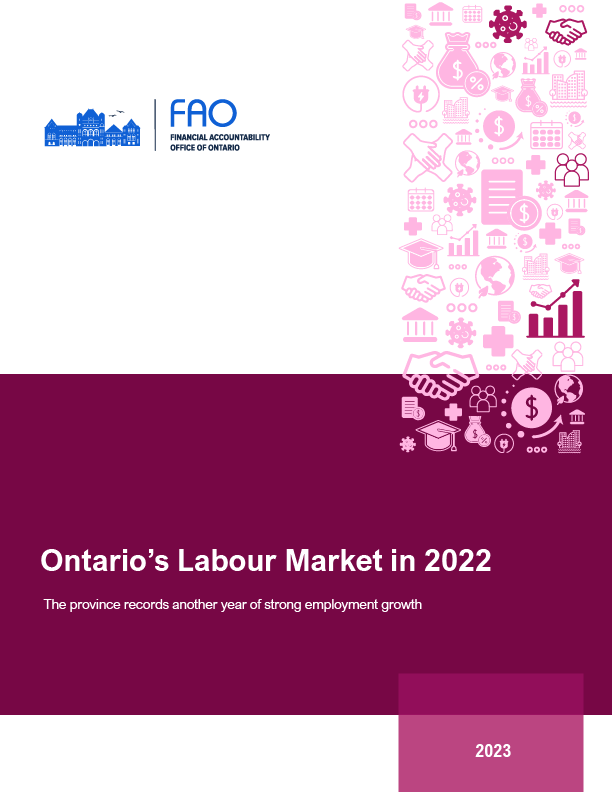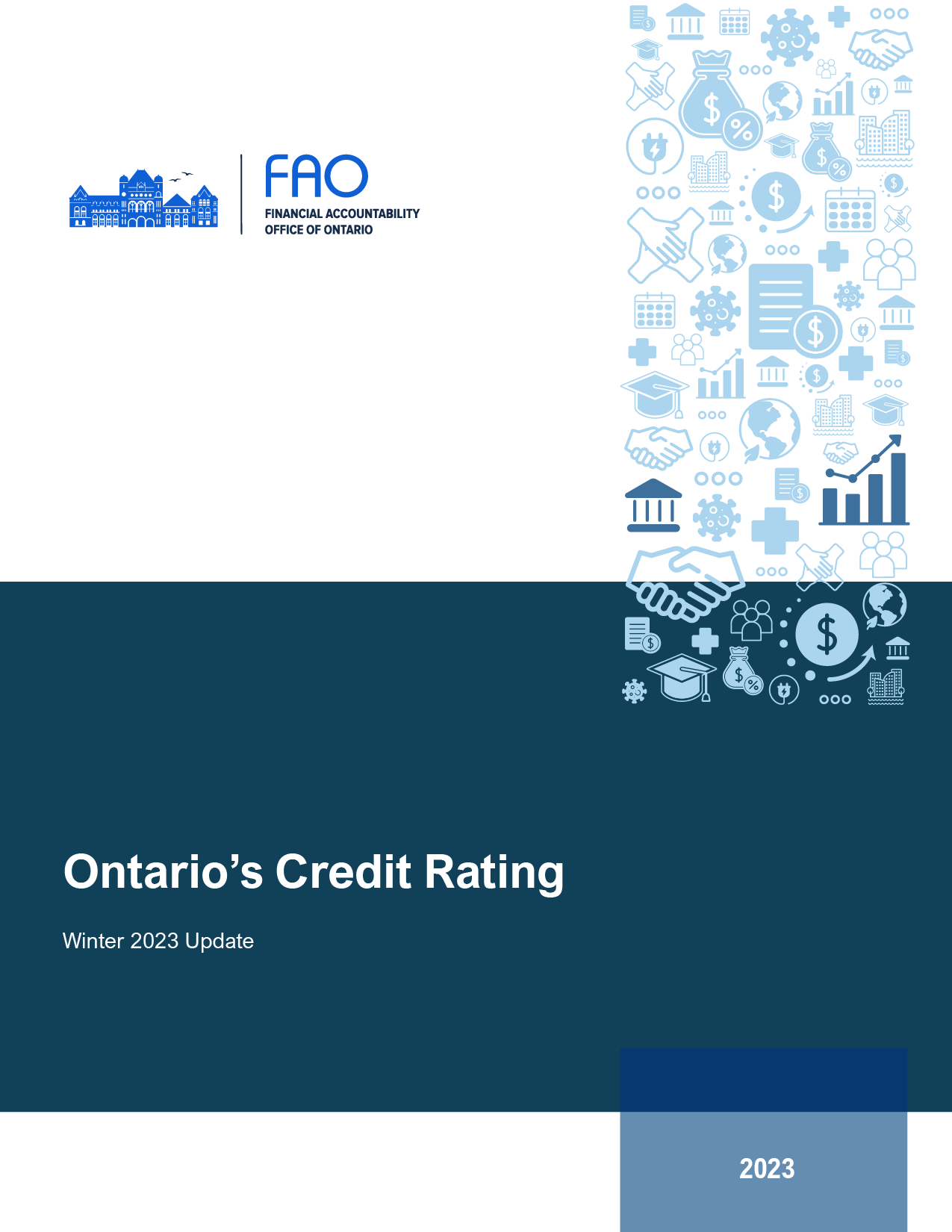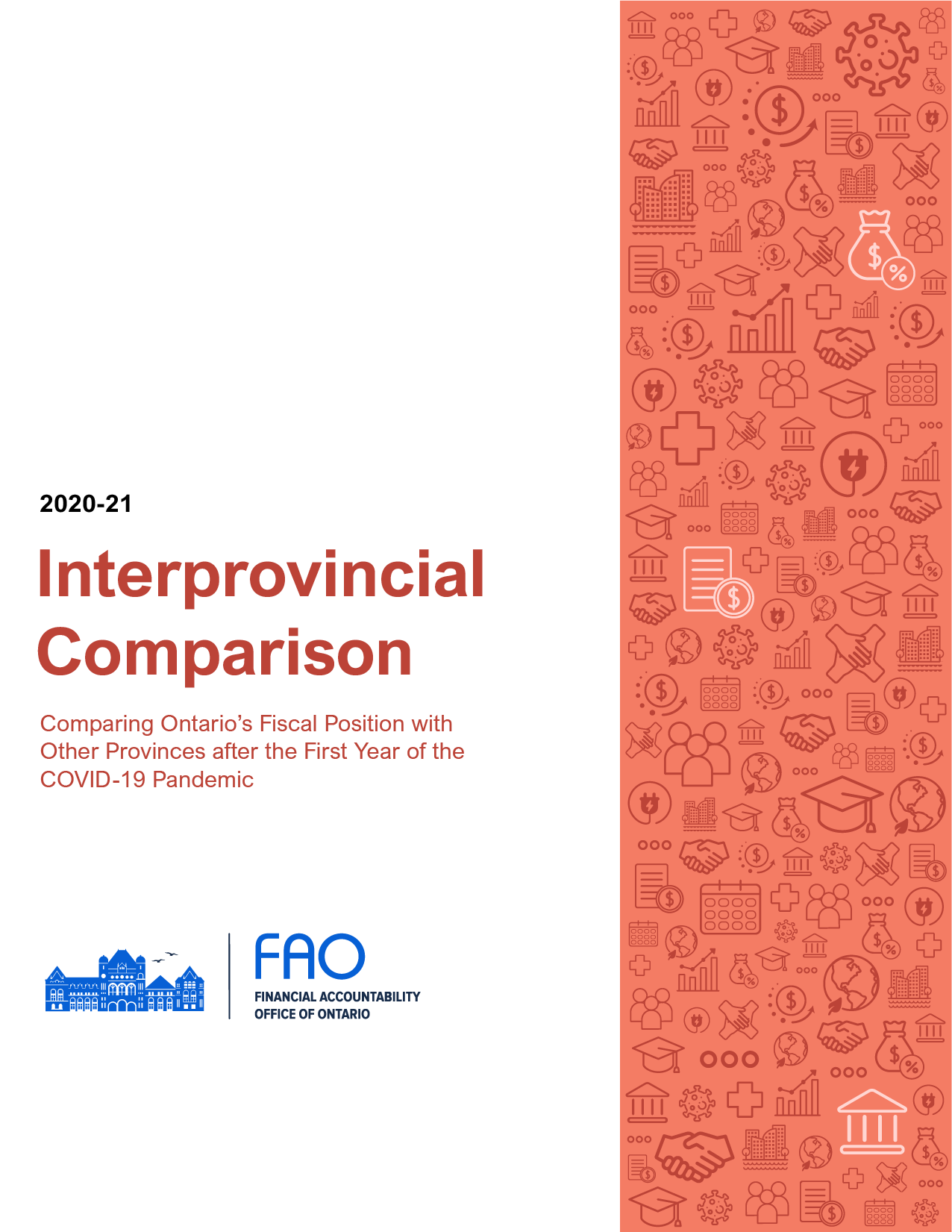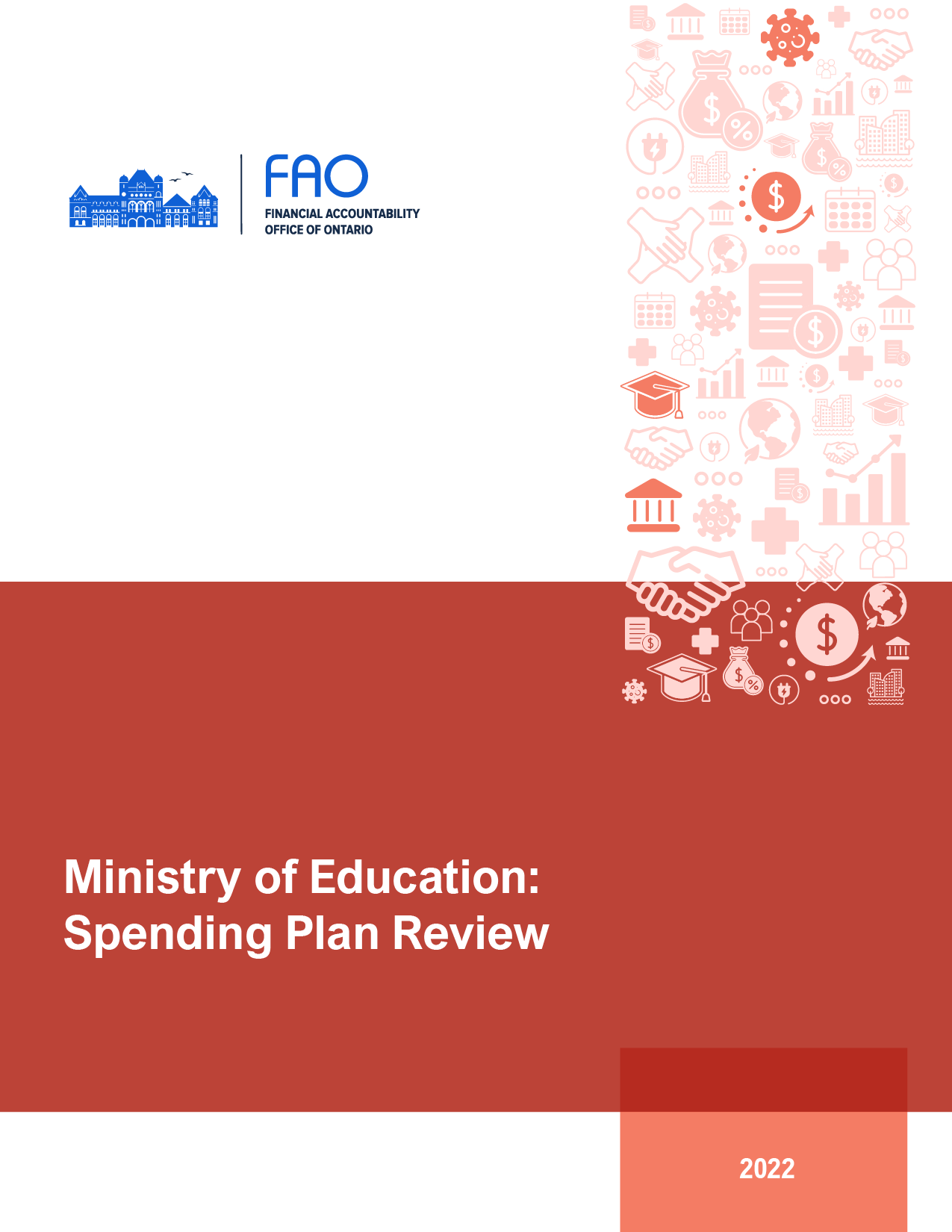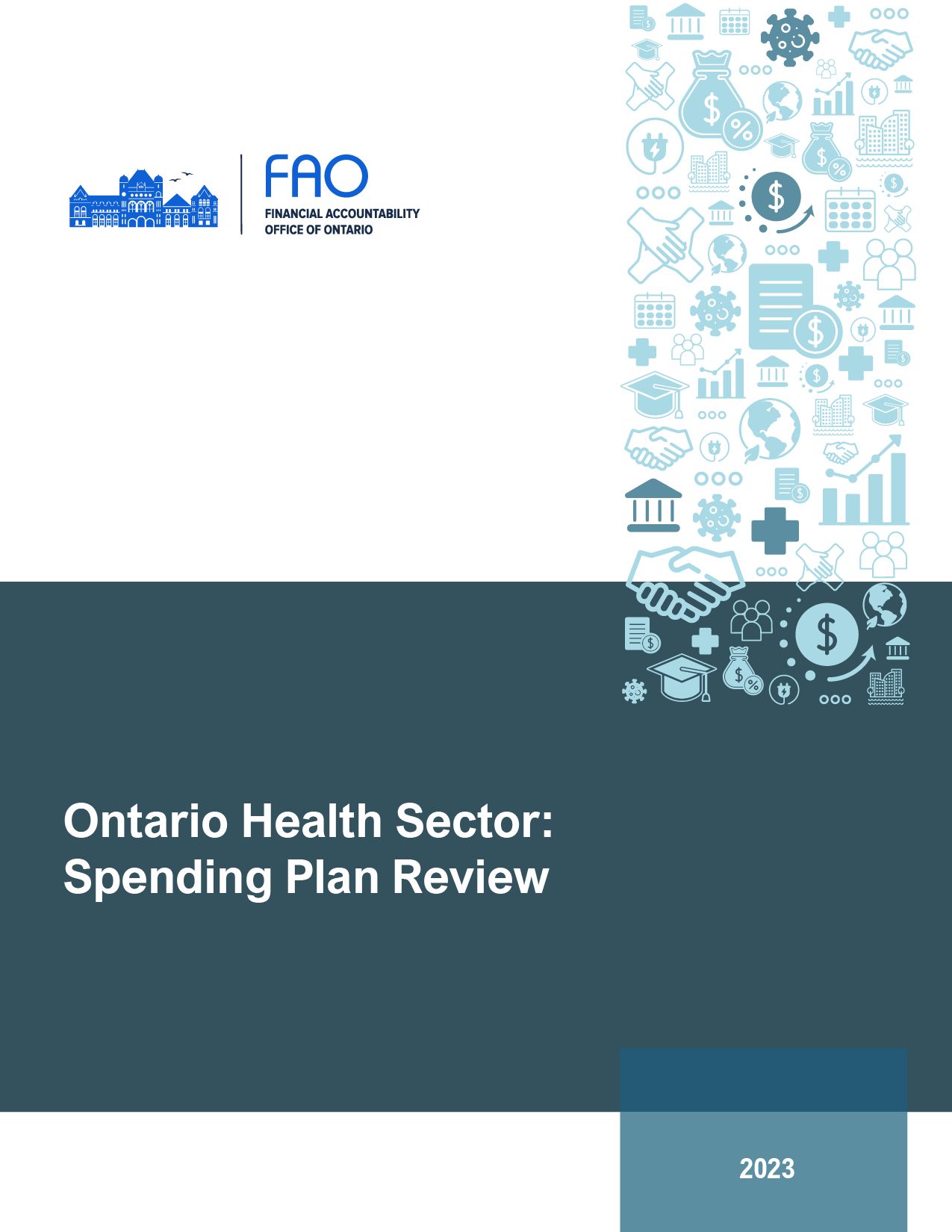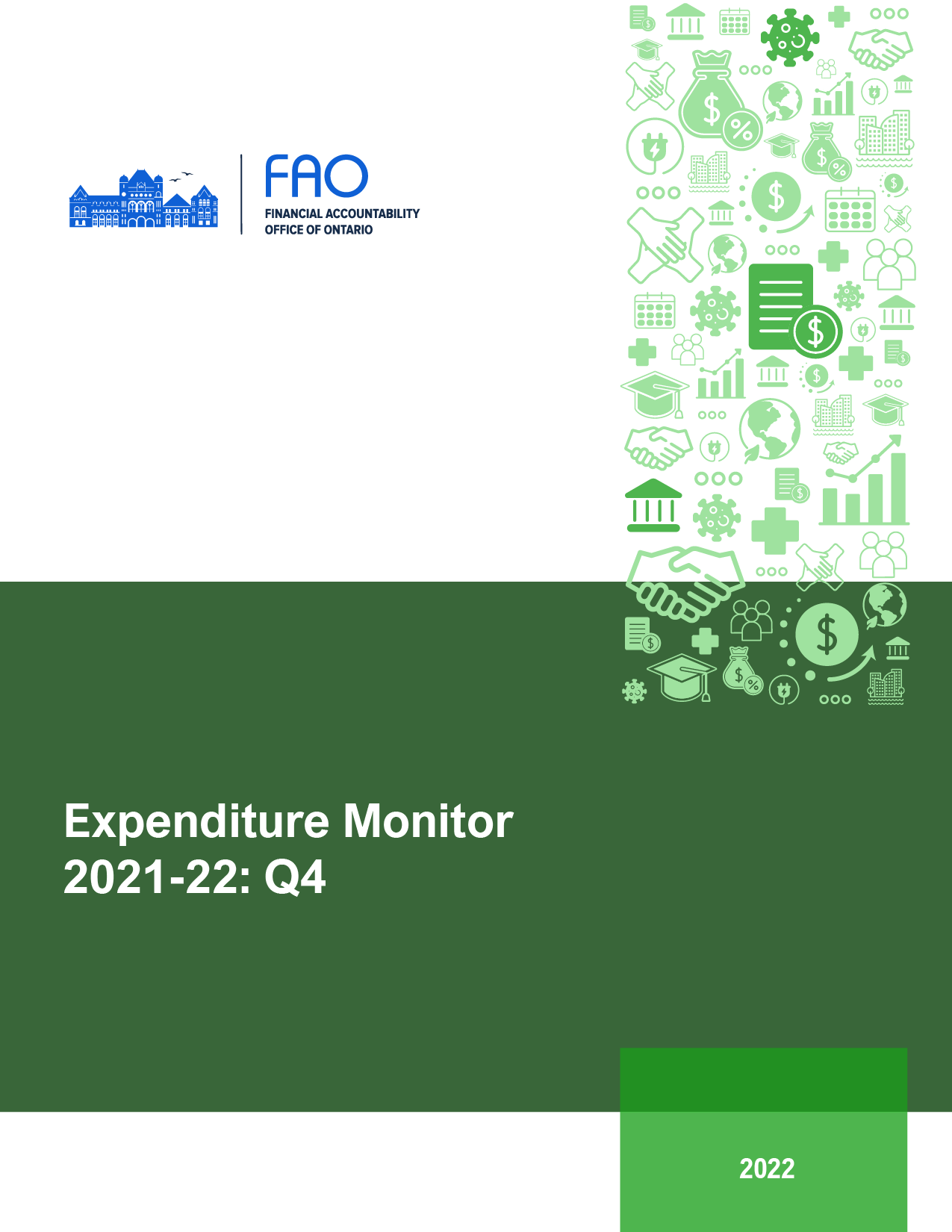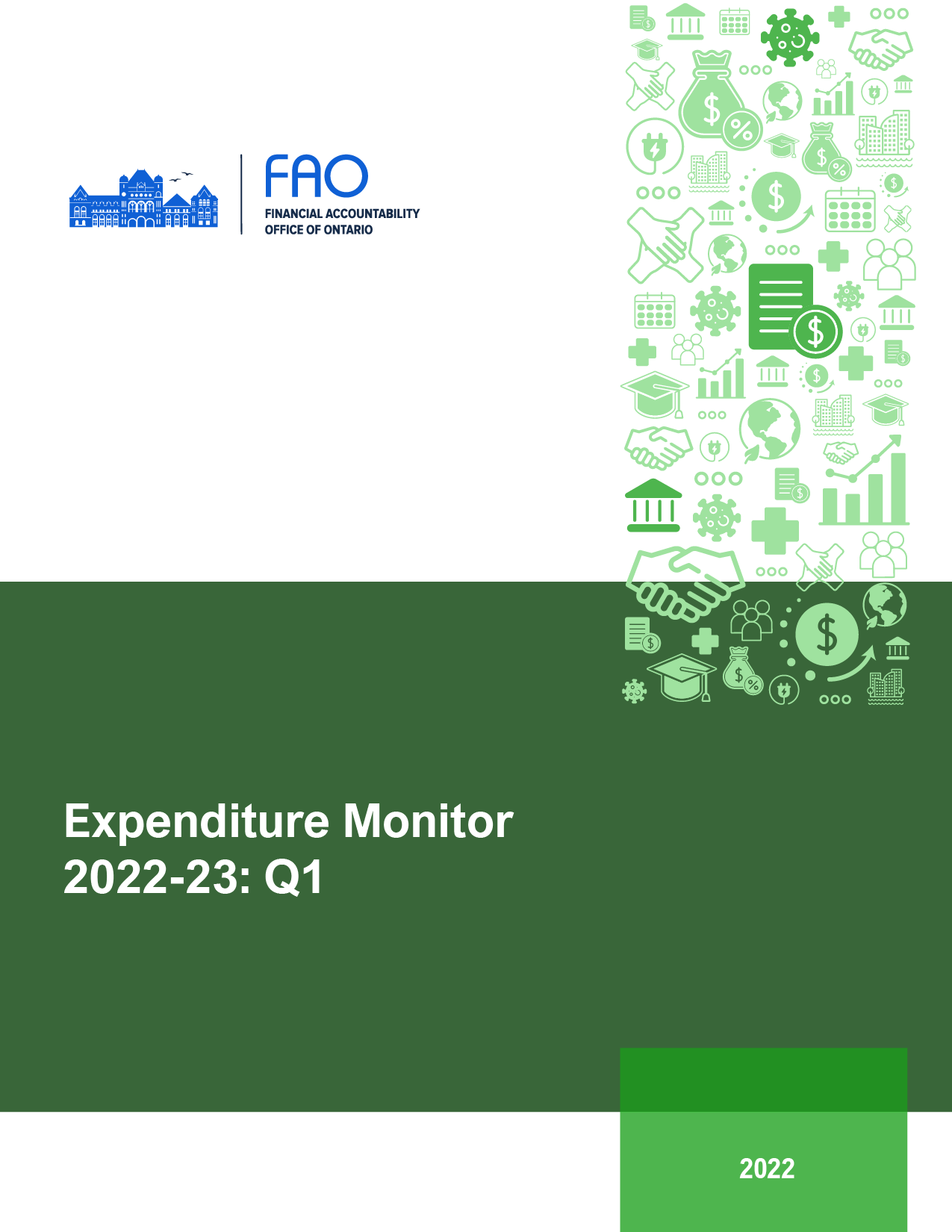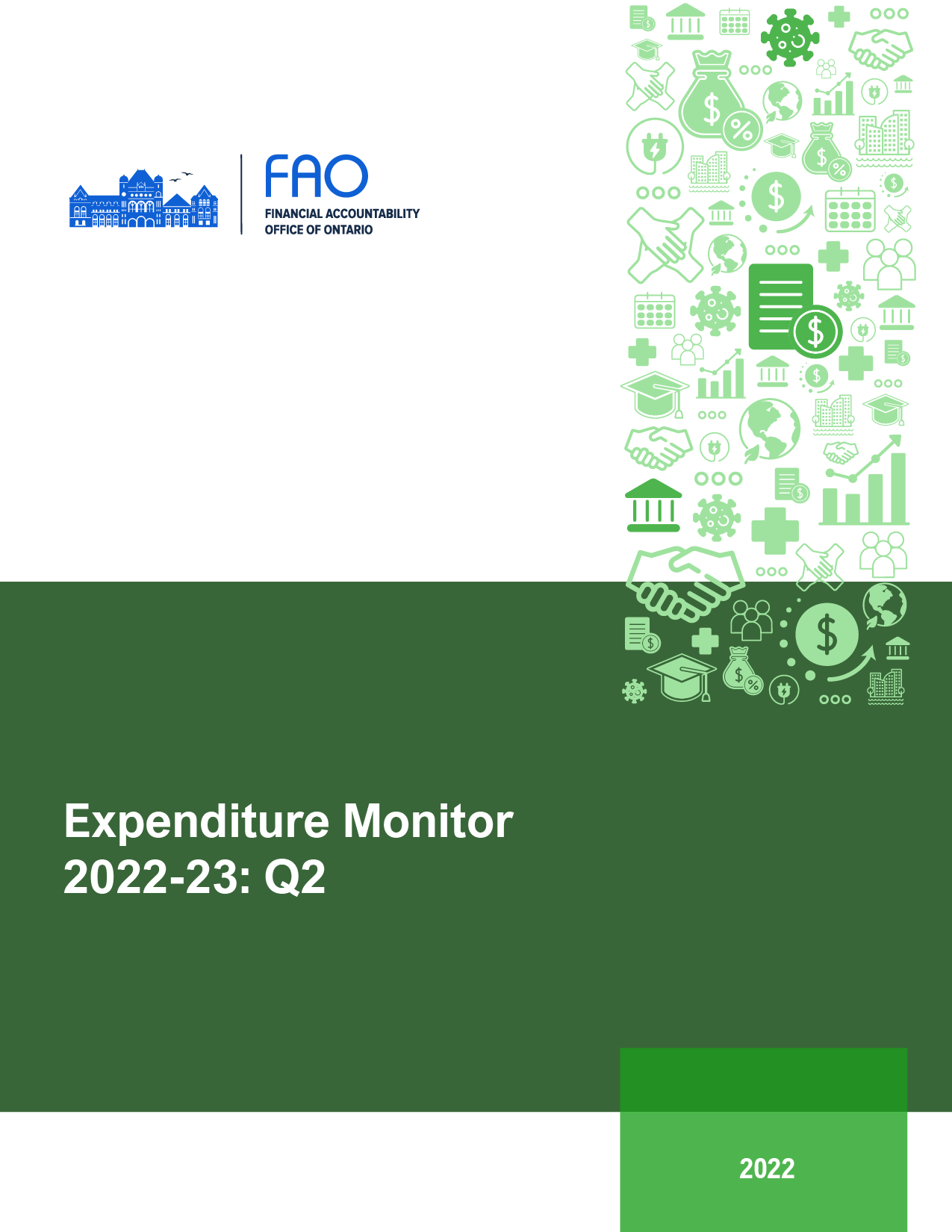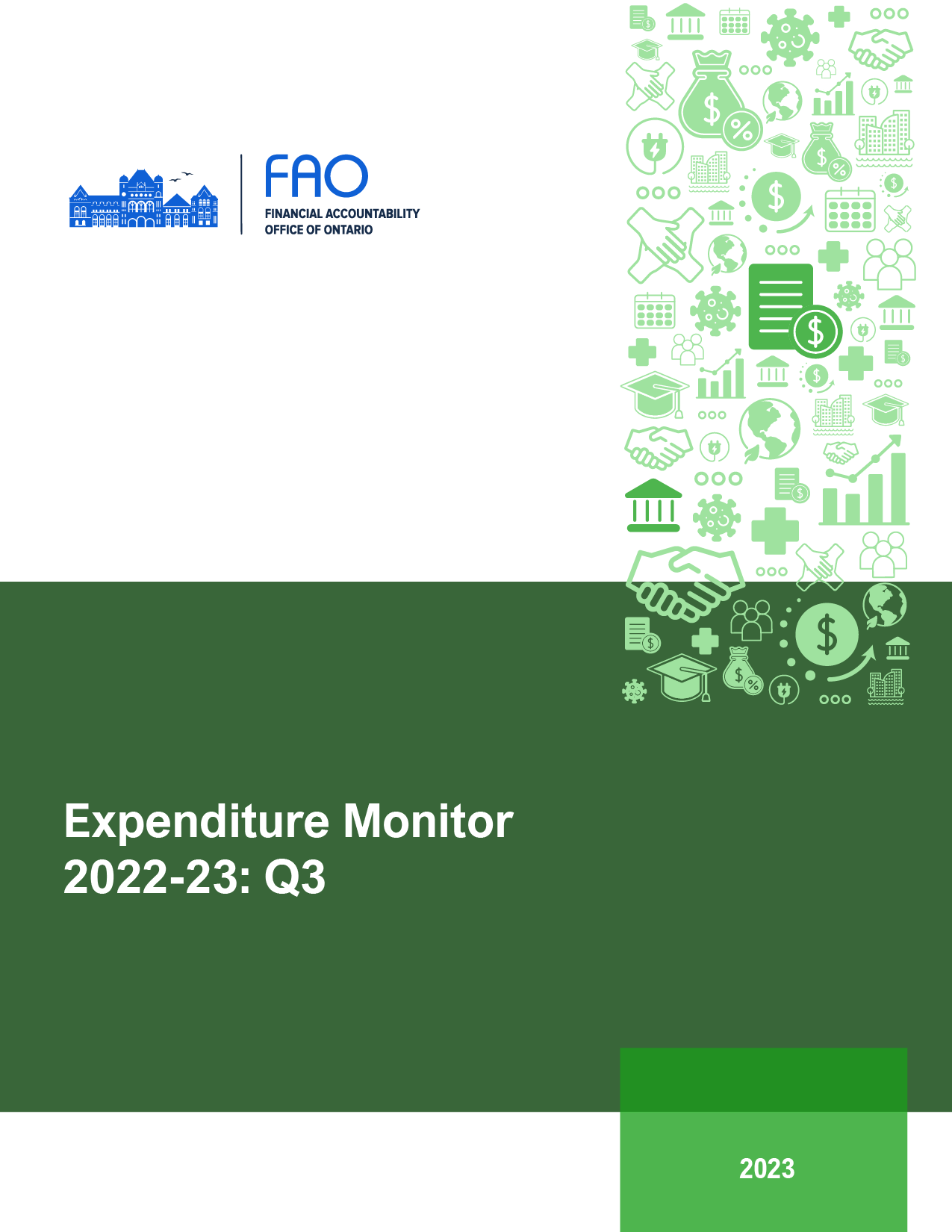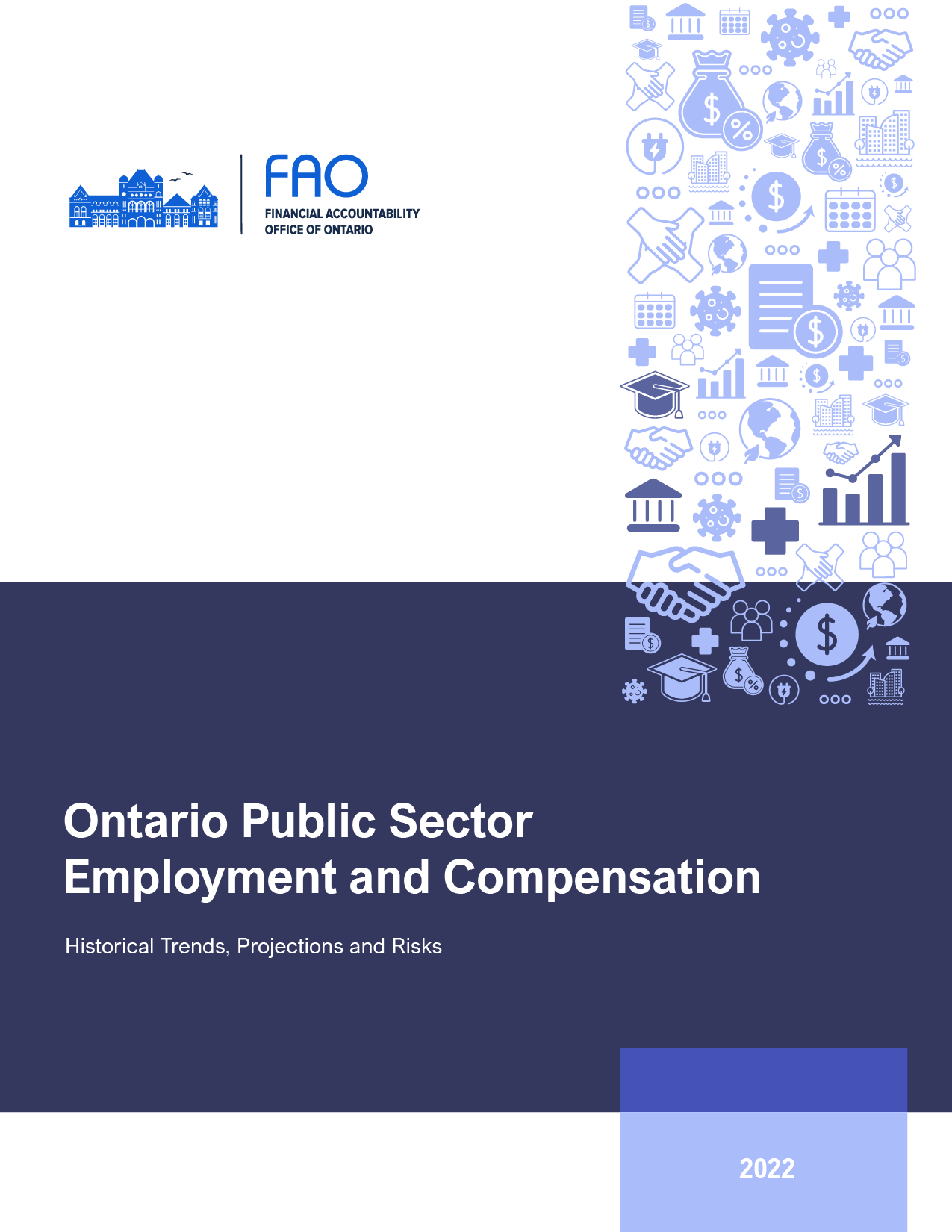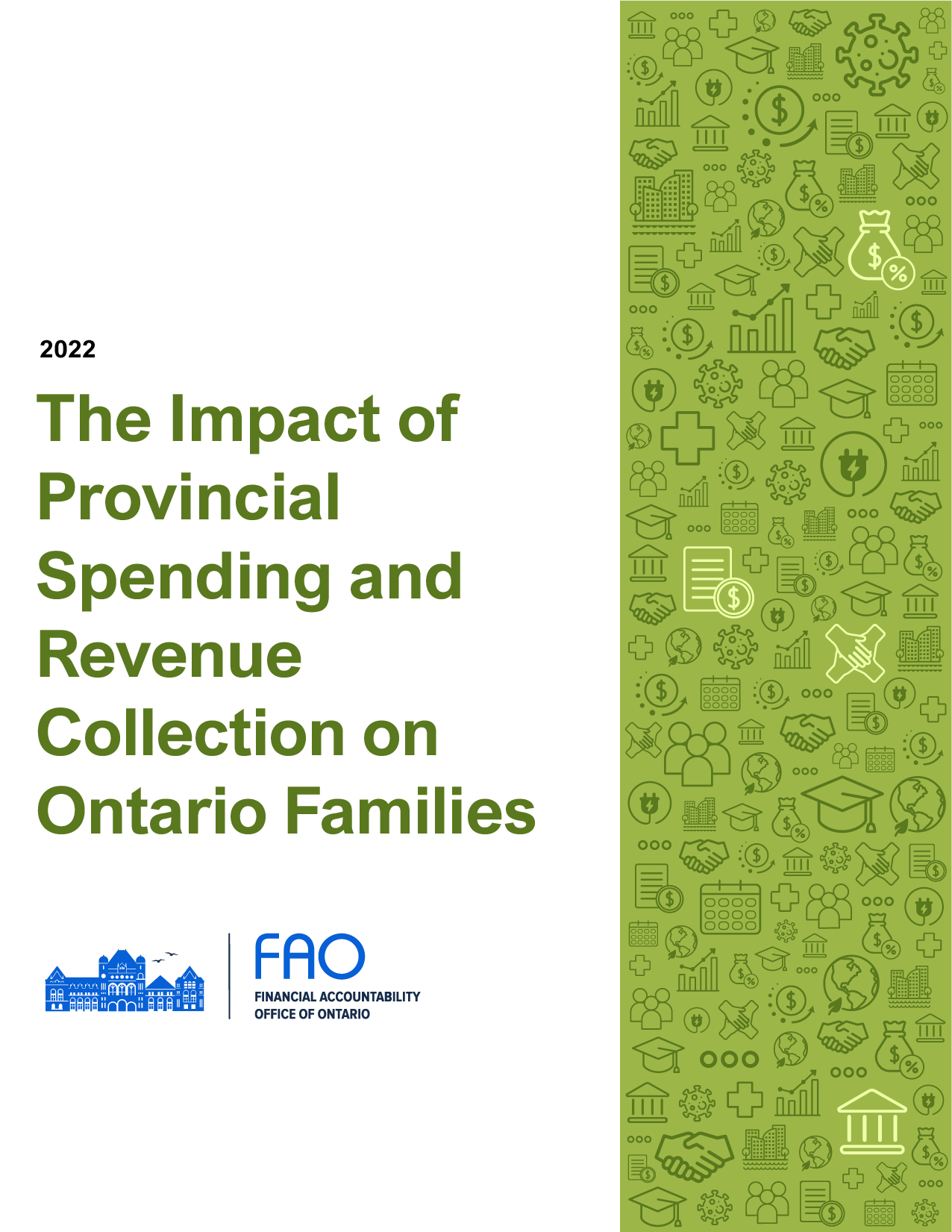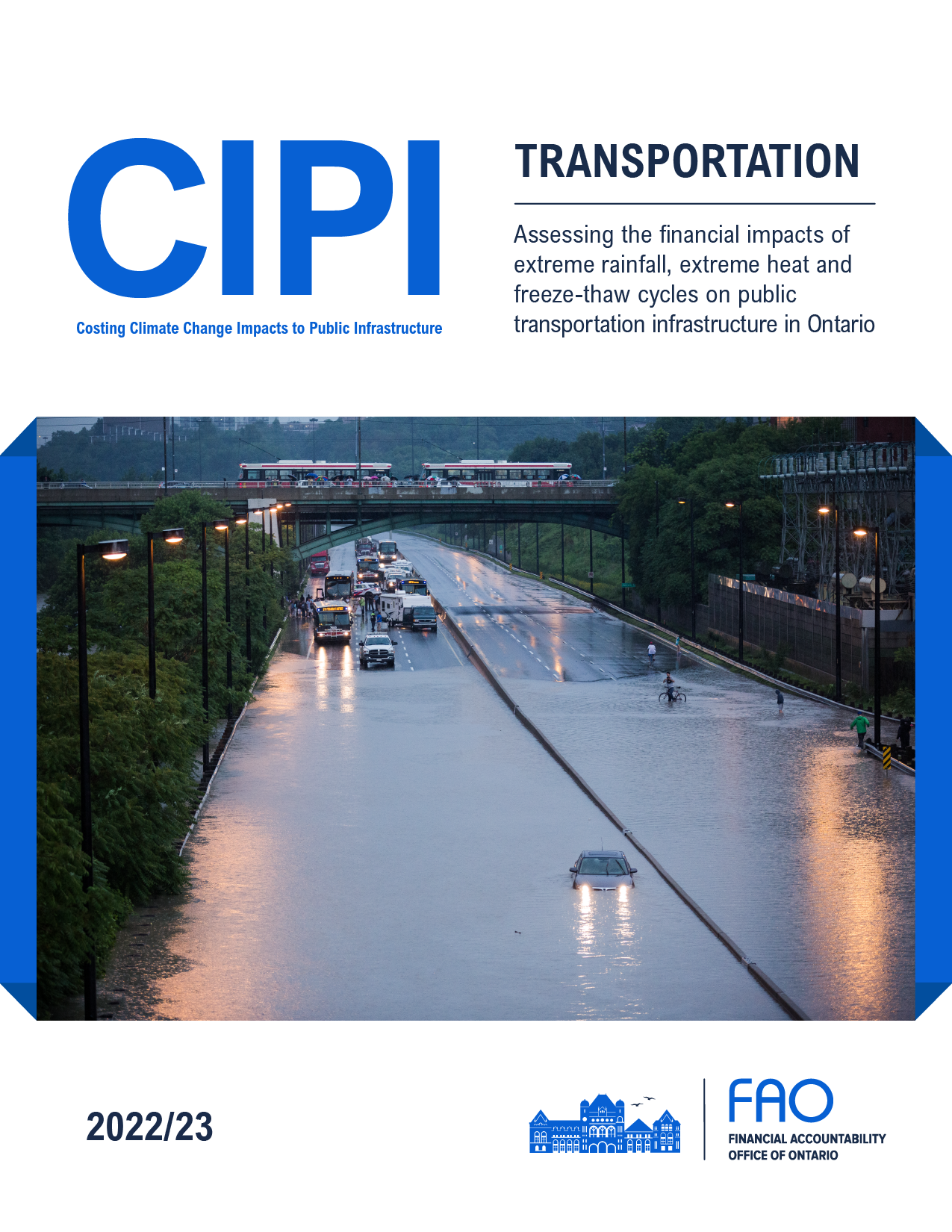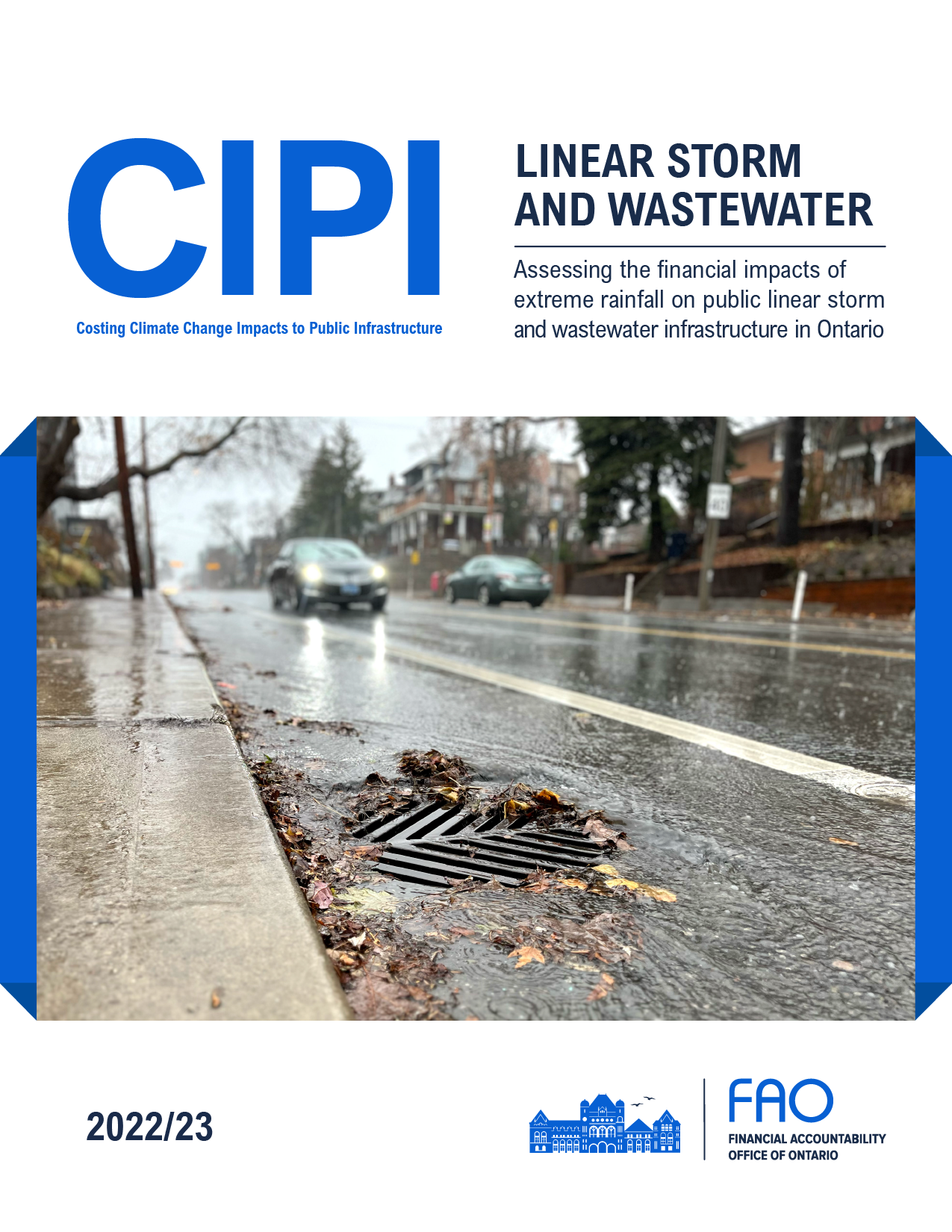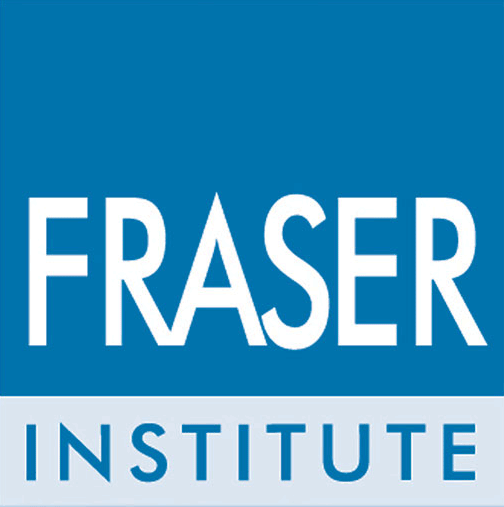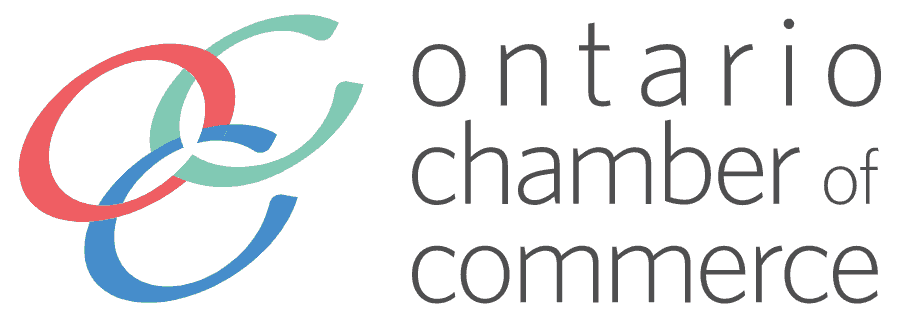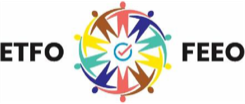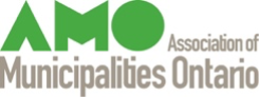
July 31, 2023
The Honourable Ted Arnott
Speaker of the Legislative Assembly of Ontario
Main Legislative Building, Room 180
Queen’s Park
Toronto, Ontario
M7A 1A2
Dear Mr. Speaker:
In accordance with section 14 of the Financial Accountability Officer Act, 2013, I am pleased to present the 2022–23 Annual Report of the Financial Accountability Officer for your submission to the Legislative Assembly at the earliest reasonable opportunity.
Sincerely,
 Jeffrey Novak
Jeffrey Novak
Acting Financial Accountability Officer
Officer’s Note
I am pleased to introduce myself as Ontario’s Acting Financial Accountability Officer. As you may know, Peter Weltman’s five-year term as Financial Accountability Officer ended on May 6, 2023 and, as set out in the Financial Accountability Officer Act, 2013, I have assumed the role of Acting Financial Accountability Officer until a new Officer is selected. During this time, the legislated work of the office will continue, including providing independent analysis of the Province’s finances and trends in the provincial economy, and responding to requests from members and committees of the Assembly to undertake research.
I joined the Financial Accountability Office in November 2015 following senior roles in the Ontario Public Service (OPS) at Treasury Board Secretariat, the Ministry of Finance, and the Ministry of Research and Innovation. I bring extensive experience in provincial budget planning, fiscal policy analysis and expenditure management and reporting. Before joining the OPS, I practised law in the financial services group of a national law firm.
As we embark on a year of leadership transition, I am keen to maintain the high quality of work that has positioned our office as the trusted source for independent analysis of Ontario’s finances and trends in the provincial economy. We have built a strong foundation for success through improved analytical capacity and operational effectiveness, including partnerships with subject matter experts who serve as peer reviewers to ensure that our analytical methodologies are sound and our conclusions reasonable.
To deliver on its legislated mandate, the FAO provides MPPs with semi-annual forecasts of Ontario’s economy and financial position through its Economic and Budget Outlook (EBO) reports. We also publish quarterly Expenditure Monitors to assist MPPs in tracking provincial spending and changes to program budgets within the fiscal year. Previously, in-year spending was only disclosed in the Public Accounts of Ontario, up to six months after the end of the fiscal year. Additionally, MPPs or legislative committees can make a request for the FAO to undertake research on the financial benefits or costs of any matter over which the Legislature has jurisdiction.
While our core mandate is to support MPPs and committees, we strive to make information accessible to everyone. Last year, we published 17 reports with accompanying videos for social media that garnered nearly 40,000 views. Our staff facilitated 163 stakeholder engagements and presented research at conferences including at the Association of Municipalities Ontario and the Organisation for Economic Co-operation and Development. We also launched our first learning module – Government Finances 101 – to provide MPPs, their staff and the general public with an opportunity to learn more about the provincial budget process and basic government finance.
This report provides an overview of the FAO’s mandate and key operating considerations, along with a summary of the office’s work in the 2022-23 fiscal year.
 Jeffrey Novak
Jeffrey Novak
Acting Financial Accountability Officer
Mandate and Activities
Mission and Mandate
The Financial Accountability Office’s (FAO’s) mission is to support the Legislative Assembly by providing Members of Provincial Parliament (MPPs) and committees of the Assembly with balanced, timely, non-partisan and authoritative financial and economic analysis.
The Financial Accountability Officer Act, 2013, sets out the mandate of the Financial Accountability Officer (the Officer). The Officer is required to provide an independent analysis to the Assembly about the state of the Province’s finances, including the budget, and trends in the provincial and national economies. In addition, the Officer may respond to requests from members of the Assembly and committees of the Assembly to undertake research into:
- the Province’s finances and the provincial economy;
- the estimates submitted to the Legislature; and
- the financial costs or financial benefits to the Province of any public bill that is before the Assembly or any proposal that relates to a matter over which the Legislature has jurisdiction.
Lastly, at the request of the Standing Committee on Finance and Economic Affairs, the Officer and his staff are required to attend meetings and provide assistance to the Committee. The Officer may also assist other standing or select committees upon request.
Activities in 2022-23
The FAO delivers its analysis to MPPs and committees in the form of public reports, presentations, videos, infographics and learning modules, all of which are posted to the FAO’s website and social media channels to increase accessibility and awareness.
The FAO’s work is undertaken in response to requests from MPPs or legislative committees, or on the initiative of the Officer, under several broad themes:
- Ontario’s economic and fiscal performance
- Government spending plans
- Financial analysis of specific government policies
- Learning modules
The FAO released 17 reports and one learning module in 2022-23 on a broad range of topics in line with the organization’s mandate.
Ontario’s Economic and Fiscal Performance
The FAO provides semi-annual forecasts of Ontario’s economy and financial position through its Economic and Budget Outlook (EBO) reports. The FAO’s Economic and Budget Outlook, Spring 2022 noted that the Province’s robust economic recovery and healthy revenue growth were expected to drive significant fiscal progress. The FAO projected that the Province would balance the budget by 2023-24 and run budget surpluses through 2026-27. The FAO’s Economic and Budget Outlook, Fall 2022 highlighted how Ontario’s strong economy and accelerating inflation drove extraordinary revenue growth in 2021-22, leading to a $2.1 billion budget surplus. While revenue growth was projected to slow over the outlook, the FAO projected that it would continue to outpace program spending increases, leading to growing budget surpluses. The FAO’s Economic and Budget Outlook, Winter 2023 forecasted that the rapid economic recovery from the pandemic was expected to slow sharply in 2023, reflecting the impact of elevated inflation, high interest rates and a weaker global environment. The report identified several risks to the outlook that could result in a slower or faster pace of economic growth.
The FAO also released several reports in 2022-23 examining important economic and fiscal trends in Ontario. The FAO’s Ontario’s Labour Market in 2022 report highlighted that strong post-pandemic job creation continued in 2022, with employment increasing by 338,300 jobs. When combined with the rise in 2021, this marked the strongest two-year period of job gains on record. The FAO’s Ontario’s Credit Rating: Winter 2023 Update report found that after dramatic improvements in Ontario’s finances stemming from a post-pandemic surge in economic activity, the four credit rating agencies all reaffirmed their ratings for the Province in updated assessments and maintained their rating outlooks as stable.
The 2020-21 Interprovincial Comparison compared Ontario’s fiscal results with the other provinces after the first year of the COVID-19 pandemic and found that, on a per person basis, Ontario’s total program spending in 2020 was the lowest in the country.
Government Spending Plans
To support MPPs’ and committees’ understanding of government spending, the FAO conducts reviews of ministry spending plans. These reports include a financial overview of the selected ministry and an analysis of key financial issues. In 2022-23, at the request of MPPs, the FAO reviewed the spending plans of three ministries: Education, Health and Long-Term Care.
The FAO’s quarterly Expenditure Monitor reports assist MPPs in tracking provincial spending and changes to program budgets within the fiscal year. In addition, the four reports released in 2022-23 tracked transfers from unallocated funds to government programs.
Financial Analysis of Specific Government Policies
At the request of MPPs or legislative committees, or on the initiative of the Officer, the FAO provides financial analysis of government programs or proposals. The FAO released the following four reports in 2022-23:
- Ontario Public Sector Employment and Compensation provided an overview of public sector employment in Ontario, including collective bargaining negotiations and the application of wage restraint under Bill 124. The report also projected provincial spending on employee compensation over the next five years and described risks associated with inflation, the court challenge to Bill 124 and staffing shortages.
- The Impact of Provincial Spending and Revenue Collection on Ontario Families estimated how many families were net beneficiaries from provincial government spending and revenue collection, and how many were net contributors.
- Costing Climate Impacts on Public Infrastructure (CIPI): Transportation, the second in our CIPI series, assessed the impact of extreme rainfall, extreme heat and freeze-thaw cycles on the long-term costs of maintaining public transportation infrastructure in a state of good repair.
- Costing Climate Impacts on Public Infrastructure (CIPI): Linear Storm and Wastewater, the third report in our CIPI series, assessed the impact of extreme rainfall on the long-term costs of maintaining public linear storm and wastewater infrastructure in a state of good repair.
Learning Module
The FAO strives to deliver complex economic and financial information in accessible, fun and innovative ways. To achieve this goal, we decided to start with the basics by developing our first learning module, “Government Finances 101.” The free, interactive tool provides MPPs, their staff and external stakeholders with an opportunity to learn about Ontario’s fiscal cycle through videos, graphics and interactive games. The module takes about 15 minutes to complete and provides users with a handy reference sheet and a certificate upon completion.
In 2022-23, the Government Finances 101 Learning Module was viewed 2,356 times.
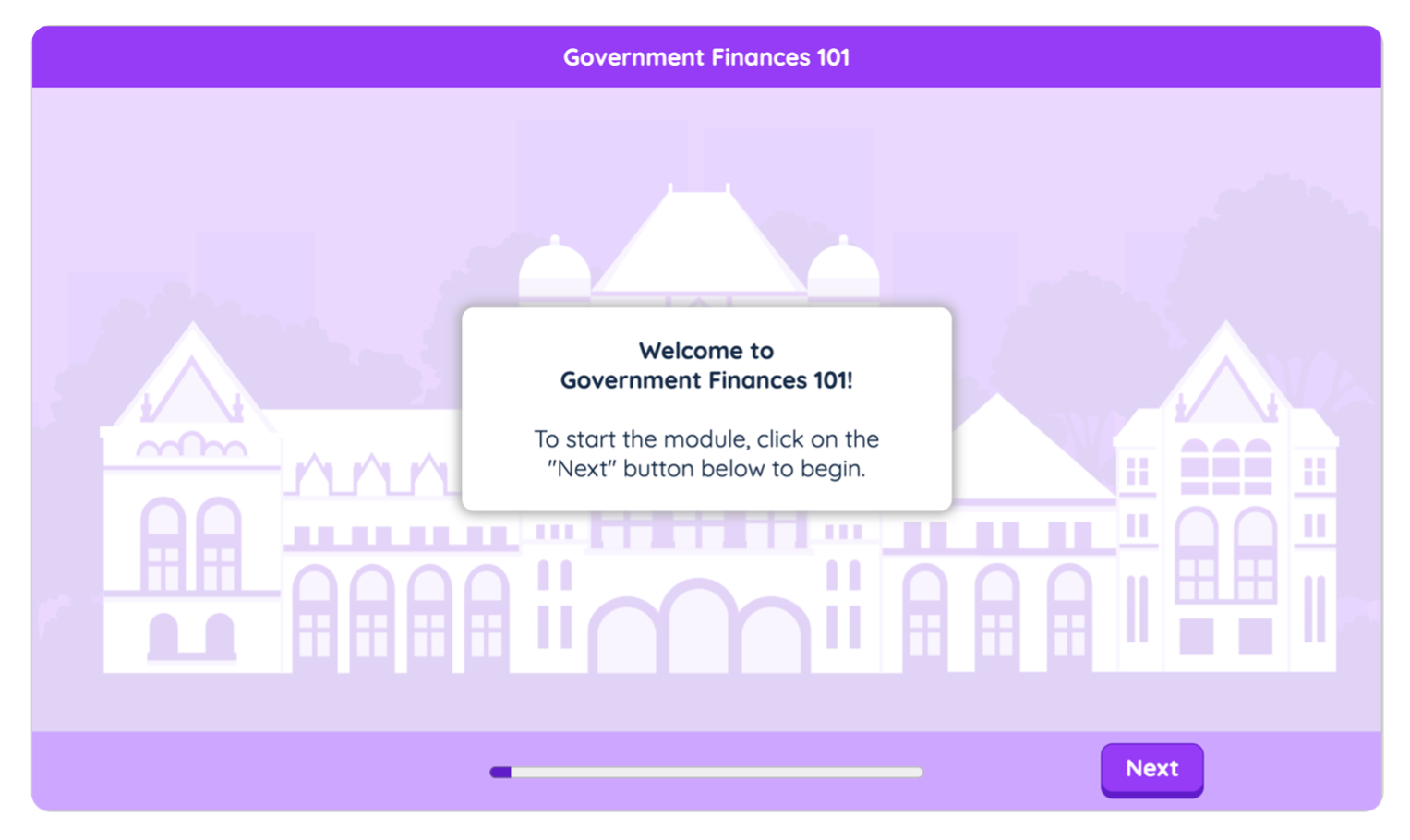
Use of the FAO’s Work
In 2022-23, the FAO continued to build a reputation as the trusted source for independent analysis of Ontario’s finances and trends in the provincial economy, providing MPPs, stakeholders and the public with a neutral, non-partisan voice to assess the impacts of government policy on the Province’s fiscal and economic position.
Members of Provincial Parliament
The FAO’s primary role is to support MPPs as they perform their constitutional function to review and approve the government’s spending and taxation plans. The FAO provides MPPs with balanced, timely, non-partisan and authoritative economic and financial analysis, assisting them in asking the government informed questions.
In addition to releasing 17 reports and one learning module in 2022-23, the FAO held technical briefings for interested MPPs, individual meetings upon request and responded to dozens of MPP queries. The FAO also provided a briefing to the Standing Committee on Finance and Economic Affairs on the work of the office.
To determine the effectiveness of our support for MPPs, the FAO tracks both the frequency of mentions in the Legislature, and the context in which a report was used. In 2022-23, the FAO was mentioned a record 223 times in the Ontario Legislature; in other words, 64 per cent of all sitting days included a mention of the FAO, up from 49 per cent in 2021-22. Critically, each political party used data from our reports to defend or scrutinize government policy, reflecting the FAO’s success in carrying out its mandate as a neutral, non-partisan office.
If we look at that FAO report, it shows that we invested over $3.6 billion more than was invested in the same period last year. That means more than $1 billion extra in health care, $879 million in education, $518 million on children and social services.
The Financial Accountability Officer-who is independent, who is non-partisan and who is following the money projects that Ontario will have less hospital capacity, less long-term-care capacity in 2028 than it did in 2018, and basically the status quo in home care capacity. This is an important report that the government should be paying attention to.
An FAO report just last year confirmed that since 2008, Ontario has had the lowest per capita funding for health care of any province in the country. Health spending in Ontario is 10% lower than the Canadian average, and this has had disastrous consequences.
The recent reports from the Financial Accountability Office do nothing to reassure me that this government will do otherwise. In successive quarters, we have seen consistent underspending across all of the major ministries: $1.3 billion less in health than promised, $844 million less in education, $175 million less in post-secondary education and $458 million less in children and social services - the funding that goes to deliver services to those who need our help the most.
Stakeholders
Use of the FAO’s work extends beyond the Legislature to the field of policy analysis where researchers and external organizations increasingly reference FAO data. In 2022-23, a number of publications and organizations cited FAO reports including:
- World Health Organization
- Canadian Centre for Policy Alternatives
- Fraser Institute
- Organisation for Economic Co-operation and Development (OECD)
Each year, the Ministry of Finance and the Standing Committee on Finance and Economic Affairs conduct pre-budget consultations to inform the upcoming Budget, seeking input from workers, families, business owners and community groups. In 2022-23, a number of organizations used data from FAO reports to strengthen their pre-budget submissions, including:
- Ontario Chamber of Commerce
- Elementary Teachers’ Federation of Ontario (ETFO)
- Association of Municipalities Ontario (AMO)
The FAO is always ready to discuss its reports with interested stakeholders. In 2022-23, the FAO facilitated 163 stakeholder engagements in the form of phone calls, emails and presentations. Notably, FAO analysts presented their work to the Association of Municipalities Ontario, the Organisation for Economic Co-operation and Development, and the Military Operations Research Society (MORS) national security conference.
General Public
The FAO incorporates a range of communications techniques to engage with the public in a meaningful way. This includes strategic outreach through earned media, social media and our website. Our goal is to structure information to best suit audiences on each platform, whether through a carefully constructed news release for the media, video/infographic for social media, or a central portal on our website.
Earned Media
The FAO was mentioned in the print media 6,969 times in 2022-23, up from 5,801 mentions the previous year.
Social Media
FAO report summary videos are designed to make our reports more accessible by presenting key facts in an engaging way. Our videos draw large audiences on social media platforms, reaching 39,476 views in 2022-23.
Across all FAO social media platforms, follower rate has been steadily increasing. When looking at year-over-year growth, Twitter followers increased by 15 per cent, while LinkedIn followers increased by 28 per cent and Instagram followers by 60 per cent. Members of the public are also able to subscribe to the FAO’s news alerts to receive updates on reports; the number of these subscribers increased by 28 per cent in 2022-23.
Website
The FAO’s website continues to draw the highest number of engagements among the general public, with 184,010 page views in 2022-23. In 2023, the FAO’s website surpassed one million views since its launch in 2015. The FAO’s most popular report in 2022-23 was a review of Housing and Homelessness Programs in Ontario. While originally published in 2021, the report continued to draw attention with 7,317 views this year. Rounding out the top five most viewed reports in 2022-23 were Ontario Public Sector Employment and Compensation (2022), the Ministry of Health: Spending Plan Review (2021), 2020-21 Interprovincial Comparison (2022), and Ontario's Energy and Electricity Subsidy Programs (2022).

Access to and Disclosure of Information
Access to Information
Access to government information is a key requirement for the FAO’s work, forming the basis for economic and fiscal analysis in support of the Legislative Assembly. In 2022-23, the FAO maintained its professional working relationship with the executive branch, including ministries and other public entities, with each helping to provide the FAO with timely access to all requested information as legally required.
Ministries and public entities have a statutory duty to provide the FAO with information that the Officer believes necessary to perform his mandated duties, subject to only limited exceptions. In addition, three orders in council provide the FAO with access to certain information contained in Cabinet records from the current Executive Council, presided over by Premier Ford, and the previous two Executive Councils, presided over by Premier Ford and former Premier Wynne.
Without access to government information, especially Cabinet records, the FAO could not operate at current levels, both in terms of the number of reports produced and the quality of analysis in many of its reports. As such, it is important that all MPPs understand the relevance and value that this information brings to the Legislature’s ability to hold the government to account.
Disclosure of Information
Although the FAO has access to a wide range of information, the Financial Accountability Officer Act, 2013 and the orders in council place important restrictions on the FAO’s ability to disclose government information.
Accordingly, the FAO has put in place internal processes that ensure information subject to these restrictions is not disclosed. As part of these processes, ministries and public entities provide advice to the FAO, which helps ensure that the FAO complies with its disclosure of information obligations.
Financial Statement
Total spending by the FAO in 2022-23 was $3,931,137. This was $39,863 less than the FAO’s approved budget for 2022-23.
Financial figures are rounded to the nearest dollar and are prepared on a modified cash basis. The accounts and financial statements of the office of the Financial Accountability Officer are audited annually by the office of the Auditor General of Ontario.
| 2022-23 $ (Unaudited) |
2021-22 $ (Unaudited) |
2020-21 $ (Unaudited) |
2019-20 $ (Unaudited) |
|
|---|---|---|---|---|
| Budget | ||||
| Approved Budget | 3,971,000 | 3,966,700 | 3,850,000 | 3,711,000 |
| One-time transfer | - | - | 88,000 | 16,791 |
| Total Approved Budget | 3,971,000 | 3,966,700 | 3,938,000 | 3,727,791 |
| Expenditure | ||||
| Salaries and wages | 2,644,777 | 2,552,552 | 2,736,481 | 2,383,145 |
| Employee benefits | 492,943 | 540,587 | 518,913 | 397,639 |
| Transportation and communication | 24,541 | 14,902 | 9,225 | 17,076 |
| Services | 717,115 | 717,630 | 644,889 | 873,536 |
| Supplies and equipment | 51,761 | 35,486 | 28,111 | 56,395 |
| Total Expenditure | 3,931,137 | 3,861,157 | 3,937,619 | 3,727,791 |
| Unused Appropriation | 39,863 | 105,543 | 381 | 0 |
The Year in Review
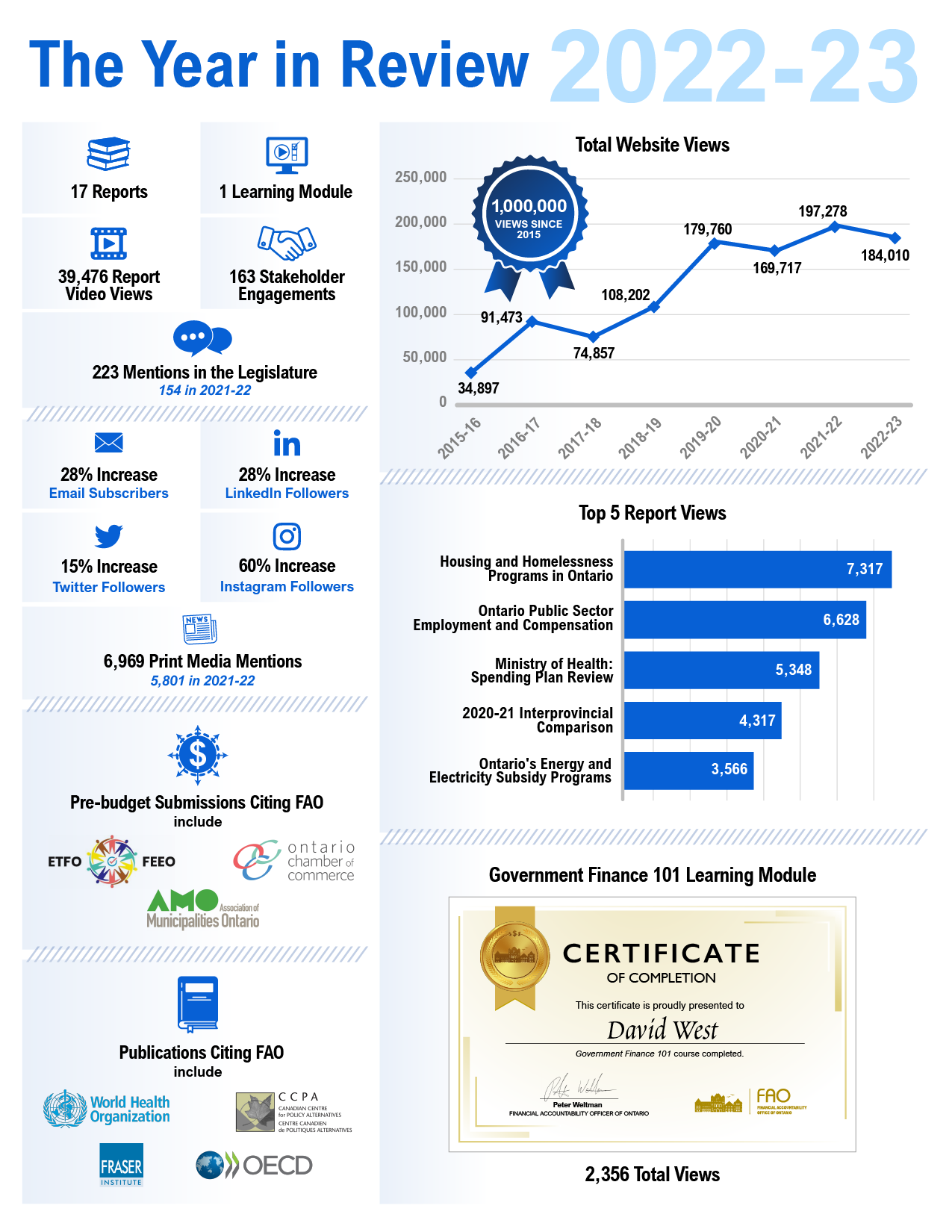
Image description
Last year: The Year in Review: 2022-23
In 2022-23, the FAO was mentioned a record 223 times in the Ontario Legislature; in other words, 64 per cent of all sitting days included a mention of the FAO, up from 49 per cent in 2021-22.
Publications citing FAO include:
- World Health Organization
- Canadian Centre for Policy Alternatives
- Fraser Institute
- Organisation for Economic Co-operation and Development (OECD)
Pre-budget Submissions Citing FAO include:
- Elementary Teachers’ Federation of Ontario
- Ontario Chamber of Commerce
- Association of Municipalities Ontario
Across all FAO social media platforms, followership has been steadily increasing since their launch. When looking at year-over-year growth, Twitter followers increased by 18 per cent, while LinkedIn followers increased by 55 per cent, and Instagram followers by 75 per cent. Members of the public are also able to subscribe to the FAO’s news alerts to receive updates on reports; the number of these subscribers increased by 16 per cent in 2021-22 over 2020-21.
The FAO’s website continues to draw the highest number of engagements among the general public, with a record 197,278 unique page views in 2021-22.


